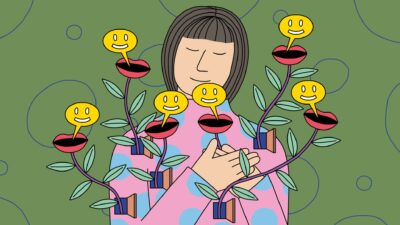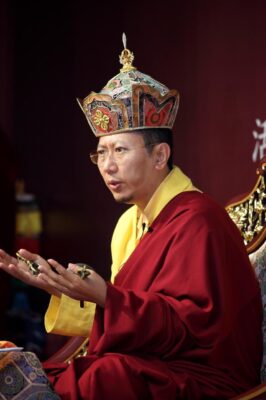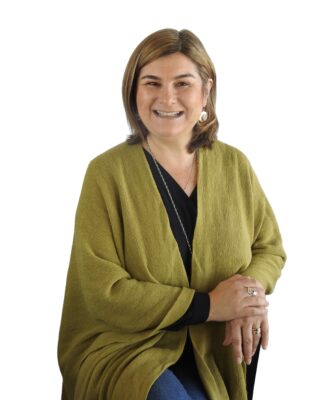 In 1896, a man in Dummerston, Vermont, was driven from his beloved home over what should have been a minor family dispute. He generally got along well with his brother-in-law, who lived next door. One day in an argument, however, the brother-in-law—who was a bit of a hothead—threatened to punch him. In reaction, the man had his brother-in-law arrested, which the neighbors saw as a massive overreaction. At the trial, the man acted haughty and “arrogant” toward others, according to newspaper accounts. He became so unpopular for his attitude and actions that, shunned by the local residents, he felt compelled to leave the town he loved, never to return.
In 1896, a man in Dummerston, Vermont, was driven from his beloved home over what should have been a minor family dispute. He generally got along well with his brother-in-law, who lived next door. One day in an argument, however, the brother-in-law—who was a bit of a hothead—threatened to punch him. In reaction, the man had his brother-in-law arrested, which the neighbors saw as a massive overreaction. At the trial, the man acted haughty and “arrogant” toward others, according to newspaper accounts. He became so unpopular for his attitude and actions that, shunned by the local residents, he felt compelled to leave the town he loved, never to return.
This man could certainly have used some advice on keeping things in perspective. One great example, by the poet Rudyard Kipling, was written some months earlier: “If you can keep your head when all about you / Are losing theirs and blaming it on you, / If you can trust yourself when all men doubt you, / But make allowance for their doubting too.” Verse by verse, the poem, titled “If,” dispenses the soundest of counsel on how to keep petty conflict from blowing up into a major life disruption.
Had he heeded that wise poem, the unfortunate man in Vermont would have let the altercation run off him, not overreacted, not talked down to others, repaired his relationship, and gotten on with his life. In fact, he was familiar with “If”: Though the poem was not published until years after the spat, the overreacting man was none other than Kipling himself.
Kipling wasn’t a hypocrite; rather, he simply was unable to take the excellent advice that he had offered others. It’s a version of Solomon’s paradox, named after the wise king from the Bible who failed to live by his own wisdom, leading to the demise of his kingdom. Researchers find that this sort of behavior is strikingly common. Maybe you can relate: For example, although you would counsel a close friend to swallow her pride and reconcile with a family member for the sake of her own happiness, you might struggle to do the same. Or though you would strongly advise a friend against infidelity, knowing that the result will be catastrophic, you might commit it yourself.
But we are not sentenced to live out Solomon’s paradox forever. We can learn to give ourselves good advice and take it as well, and become much happier as a result.
People ask others for advice in order to seek information, validate their beliefs, and process inputs from multiple points of view. Researchers have found that we choose whom to seek out for advice depending on how accessible they are to us, and how trustworthy. When you need help with personal issues, you can find these qualities in a close friend; for medical or professional issues, “trustworthiness” might come instead from a diploma on an office wall.
Following this logic, the reason we don’t take advice might be because we don’t trust the people who give it enough to do so. You are unlikely to take counsel about a work conflict from a friend who has gotten fired eight times, for example. So when we don’t take our own advice, it might be that we don’t trust ourselves.
Our self-mistrust could originate in problems of self-esteem or high anxiety. Scholars in 2005 showed that when people experience these problems, they can give advice they personally don’t take. You might sagely tell a friend who has suffered a nasty breakup to “get back on the horse”; meanwhile, you un-sagely stay single and lonely for years out of a fear of being hurt again.
Even if we trust ourselves, guilt can keep us from really listening to ourselves. In experiments, people tend to choose hedonic options (featuring sensations and experiences) for others, but utilitarian products (which are practical and functional) for themselves. The reason, scholars find, is often guilt: We feel we should make the practical choice. The result is that if you come into an extra $500, which you could use to spend a weekend at the beach or to buy a couch, you might choose the couch because it is more sensible—even if the beach would make you happier.
Many people also tolerate different levels of risk for others than they are willing to endure personally. The pattern can differ depending on what, exactly, the advice is about. In relationships, for example, we play it safe even as we advise others to go for broke. (“Go right back there and give her a piece of your mind!”) But on medical issues, we take risks we wouldn’t allow our friends to. (“I think I’ll just ignore this little lump for the time being.”)
And even as we refuse to take the risks we push our friends toward, we can be less willing to assign ourselves hard work than we are to advise others to do it. Research shows that we tend to advise others based on what we believe is the right or optimal thing to do, not what they want to do. But when making decisions in our own lives, we are more likely to follow the easiest path, regardless of the repercussions. I taught my children to never lie, and I try hard to live up to that standard, but at times I have chosen to cut myself some slack, usually for reasons of convenience. If my kids did the same thing, I would say they are making a mistake—that small lies lead to bigger ones.
Solomon’s paradox is pretty easy to understand. Solving it is a little harder, but it’s possible if we adopt two practices.
1. Give more advice to others.
If you find yourself failing to live by the advice you give others, you might infer that your counsel is poor and decide to give less of it. But research shows that this is the wrong approach. One 2018 paper in the journal Psychological Science, for example, showed that people who struggle with goal achievement are more motivated when they dispense advice to others than when they receive it.
Hearing yourself say wise, affirming things to others can reinforce your own convictions and behavior. This is far from fail-safe—as Kipling might attest—but it helps. It is also of a piece with literature showing that the best way to help yourself is to help others. So when someone close to you is in a conundrum, think about what is truly the best course of action no matter whether you fear that you would do something else. Assuming she is open to receiving advice, offer it to her without hesitation.
2. Treat your advice like it’s someone else’s.
If you’re struggling with a particular issue, seek out others who are having similar troubles and see if you can try to help them. Then, write down what you advised, and exactly why. Finally, consider how the advice you dispensed could apply to your own life.
Say you have a friend who drinks too much—and, well, so do you. You find every excuse in your own life for why you don’t have such a big problem, and anyway, today isn’t the right day to deal with the issue. But you tell your friend the truth: This problem will only get worse and requires urgent action immediately. Write down your advice to your friend, as well as your reasoning. Now substitute yourself into the narrative, and take your advice.
Recent research shows that this kind of reflection leads to intellectual humility, open-mindedness about how situations could unfold, and attempts to integrate diverse viewpoints about personal challenges—all of which puts you in a better mindset to take advice. In other words, looking at yourself in the third person can improve the quality of your judgment and give you better solutions.
Both of these suggestions require making the advice you give yourself a formal task: Your ideas need to be well thought-out and fully formed. If your closest friend asked you for advice that might change his life, you probably wouldn’t shoot from the hip; you’d give it some thought and structure your arguments. The same goes for your advice to yourself. When you have a major decision or problem to solve, treat it like a project, with the seriousness it deserves.
Giving yourself thoughtful advice can create a sense of control in a world where we often feel we have little. Researchers have found that when people give others advice, it enhances their personal sense of power and influence. I have found that this is true for self-advising as well: When I feel powerless due to circumstances I can’t control, giving myself structured, formal counsel changes my mindset. I become more aware of the parts of the situation I can control, and more disposed to take control of my attitude toward my circumstances, which enhances happiness.
Start being Solomon, but short-circuit the paradox. Trust in the wise counsel you give others on how to manage the kingdom of their life. Then use it in your own realm.
Original article here


 Last year, I had the pleasure and honour to meet His Eminence Shyalpa Tenzin Rinpoche, first via the platform Clubhouse, then via WhatsApp and phone calls. Finally, last September, H. E. Rinpoche stopped in the UK after touring the US.
Last year, I had the pleasure and honour to meet His Eminence Shyalpa Tenzin Rinpoche, first via the platform Clubhouse, then via WhatsApp and phone calls. Finally, last September, H. E. Rinpoche stopped in the UK after touring the US. Veronica: Why is it important to build a Universal Peace Sanctuary and what is the inspiration behind this wonderful project?
Veronica: Why is it important to build a Universal Peace Sanctuary and what is the inspiration behind this wonderful project?
 Active people tend to overthink what food is doing for their body — Is keto good for endurance? What’s the perfect post-training macro spread? Butter or no butter in my coffee? — but underthink what it’s doing for their mind. Yet you’ve probably noticed that what you eat impacts what’s going on upstairs. We’ve all devoured a cheat meal and afterward felt off, not just physically but also mentally and emotionally. And new research suggests that the connection between diet and mental well-being is a little more nuanced than scientists once thought.
Active people tend to overthink what food is doing for their body — Is keto good for endurance? What’s the perfect post-training macro spread? Butter or no butter in my coffee? — but underthink what it’s doing for their mind. Yet you’ve probably noticed that what you eat impacts what’s going on upstairs. We’ve all devoured a cheat meal and afterward felt off, not just physically but also mentally and emotionally. And new research suggests that the connection between diet and mental well-being is a little more nuanced than scientists once thought.










